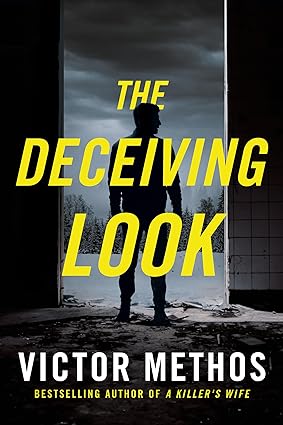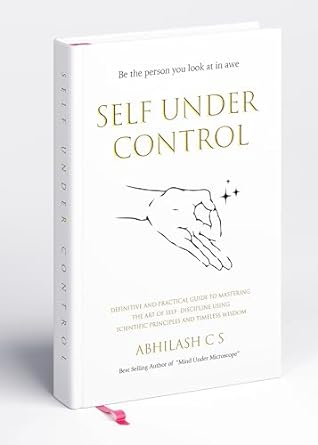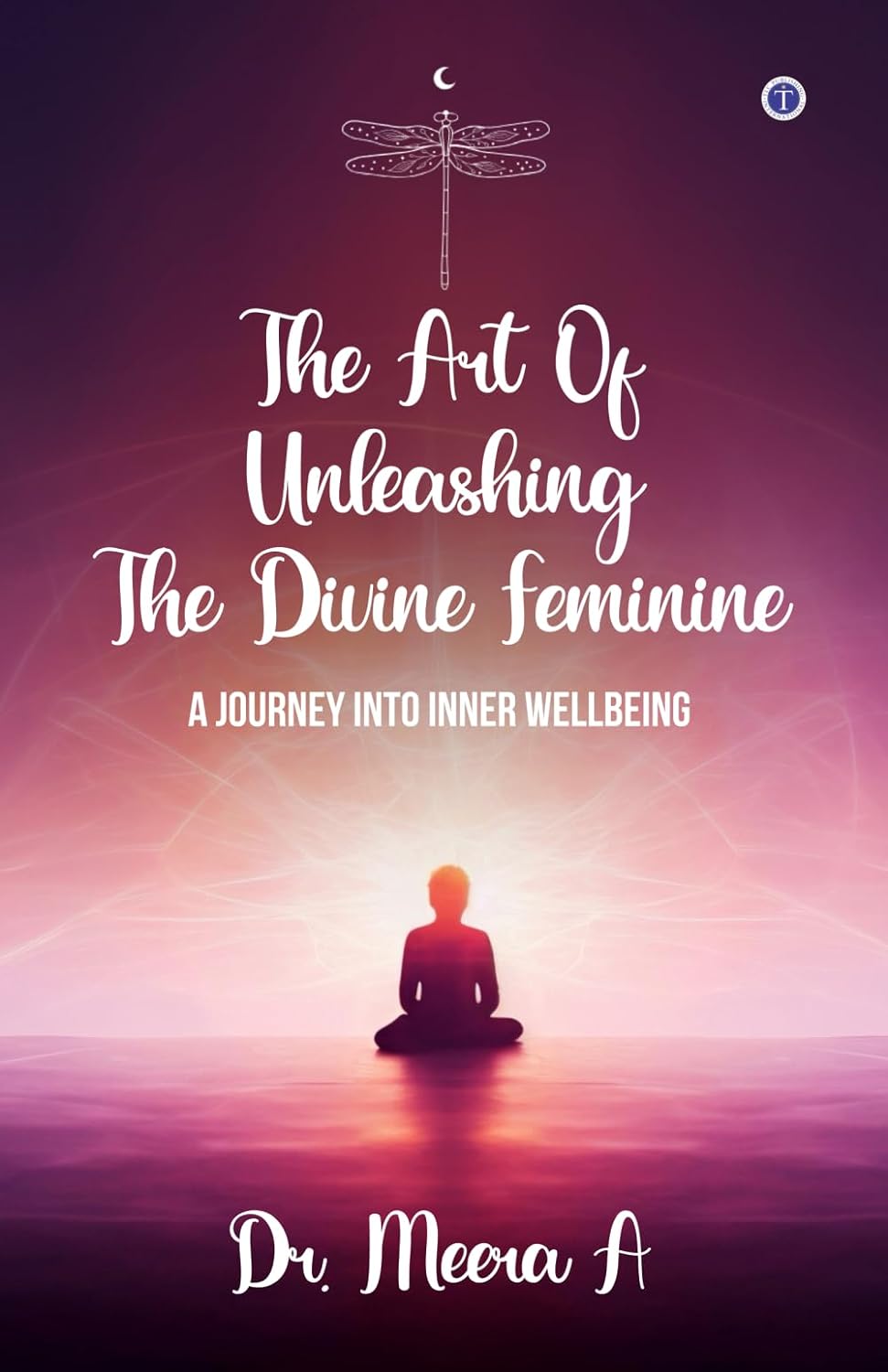
The Story of Philosophy
Originally published in 1926, ‘The Story of Philosophy’ profiles several prominent Western philosophers and their ideas, written by Will Durant, an American writer, historian, philosopher, and a Pulitzer Prize-winning author. In this enlightening and eminently readable book, Will Durant accounts the lives, ideas and views of various critical philosophical thinkers throughout history. Starting with Socrates and Plato and concluding with Friedrich Nietzsche, with twelve other distinguished philosophers in between, the author creates a history of philosophy by showing how each thinker’s ideas advised and impacted the next generation. A vital read for anyone intrigued by the evolution of Western philosophy.
BEST DEALS
About the Author
William James Durant was a prolific American writer, historian, and philosopher. He is best known for the 11-volume The Story of Civilization, written in collaboration with his wife Ariel and published between 1935 and 1975. He was earlier noted for his book, The Story of Philosophy, written in 1926, which was considered "a groundbreaking work that helped to popularize philosophy." They were awarded the Pulitzer Prize for literature in 1967 and the Presidential Medal of Freedom in 1977.
Read Sample
Chapter 1 : Plato
I. The Context of Plato
If you look at a map of Europe you will observe that Greece is a skeleton-like hand stretching its crooked fingers out into the Mediterranean Sea. South of it lies the great island of Crete, from which those grasping fingers captured, in the second millennium before Christ, the beginnings of civilization and culture. To the east, across the Ægean Sea, lies Asia Minor, quiet and apathetic now, but throbbing, in pre-Platonic days, with industry, commerce and speculation. To the west, across the Ionian, Italy stands, like a leaning tower in the sea, and Sicily and Spain, each in those days with thriving Greek colonies; and at the end, the “Pillars of Hercules” (which we call Gibraltar), that sombre portal through which not many an ancient mariner dared to pass. And on the north those still untamed and half-barbaric regions, then named Thessaly and Epirus and Macedonia, from which or through which the vigorous bands had come which fathered the geniuses of Homeric and Periclean Greece.
Look again at the map, and you see countless indentations of coast and elevations of land; everywhere gulfs and bays and the intrusive sea; and all the earth tumbled and tossed into mountains and hills. Greece was broken into isolated fragments by these natural barriers of sea and soil; travel and communication were far more difficult and dangerous then than now; every valley therefore developed its own self-sufficient economic life, its own sovereign government, its own institutions and dialect and religion and culture. In each case one or two cities, and around them, stretching up the mountainslopes, an agricultural hinterland: such were the “city-states” of Eubœa, and Locris, and Ætolia, and Phocis, and Bœotia, and Achæa, and Argolis, and Elis, and Arcadia, and Messenia, and Laconia—with its Sparta, and Attica—with its Athens.
Look at the map a last time, and observe the position of Athens: it is the farthest east of the larger cities of Greece. It was favorably placed to be the door through which the Greeks passed out to the busy cities of Asia Minor, and through which those elder cities sent their luxuries and their culture to adolescent Greece. It had an admirable port, Piræus, where countless vessels might find a haven from the rough waters of the sea. And it had a great maritime fleet.
In 490–470 B.C. Sparta and Athens, forgetting their jealousies and joining their forces, fought off the effort of the Persians under Darius and Xerxes to turn Greece into a colony of an Asiatic empire. In this struggle of youthful Europe against the senile East, Sparta provided the army and Athens the navy. The war over, Sparta demobilized her troops, and suffered the economic disturbances natural to that process; while Athens turned her navy into a merchant fleet, and became one of the greatest trading cities of the ancient world. Sparta relapsed into agricultural seclusion and stagnation, while Athens became a busy mart and port, the meeting place of many races of men and of diverse cults and customs, whose contact and rivalry begot comparison, analysis and thought.
Traditions and dogmas rub one another down to a minimum in such centers of varied intercourse; where there are a thousand faiths we are apt to become sceptical of them all. Probably the traders were the first sceptics; they had seen too much to believe too much; and the general disposition of merchants to classify all men as either fools or knaves inclined them to question every creed. Gradually, too, they were developing science; mathematics grew with the increasing complexity of exchange, astronomy with the increasing audacity of navigation. The growth of wealth brought the leisure and security which are the prerequisite of research and speculation; men now asked the stars not only for guidance on the seas but as well for an answer to the riddles of the universe; the first Greek philosophers were astronomers. “Proud of their achievements,” says Aristotle, “men pushed farther afield after the Persian wars; they took all knowledge for their province, and sought ever wider studies.” Men grew bold enough to attempt natural explanations of processes and events before attributed to supernatural agencies and powers; magic and ritual slowly gave way to science and control; and philosophy began.
At first this philosophy was physical; it looked out upon the material world and asked what was the final and irreducible constituent of things. The natural termination of this line of thought was the materialism of Democritus (460–360 B.C.)—“in reality there is nothing but atoms and space.” This was one of the main streams of Greek speculation; it passed underground for a time in Plato’s day, but emerged in Epicurus (342–270), and became a torrent of eloquence in Lucretius (98–55 B.C.). But the most characteristic and fertile developments of Greek philosophy took form with the Sophists, travelling teachers of wisdom, who looked within upon their own thought and nature, rather than out upon the world of things. They were all clever men (Gorgias and Hippias, for example), and many of them were profound (Protagoras, Prodicus); there is hardly a problem or a solution in our current philosophy of mind and conduct which they did not realize and discuss. They asked questions about anything; they stood unafraid in the presence of religious or political taboos; and boldly subpoenaed every creed and institution to appear before the judgment-seat of reason. In politics they divided into two schools. One, like Rousseau, argued that nature is good, and civilization bad; that by nature all men are equal, becoming unequal only by class-made institutions; and that law is an invention of the strong to chain and rule the weak. Another school, like Nietzsche, claimed that nature is beyond good and evil; that by nature all men are unequal; that morality is an invention of the weak to limit and deter the strong; that power is the supreme virtue, and the supreme desire of man; and that of all forms of government the wisest and most natural is aristocracy.
No doubt this attack on democracy reflected the rise of a wealthy minority at Athens which called itself the Oligarchical Party, and denounced democracy as an incompetent sham. In a sense there was not much democracy to denounce; for of the 400,000 inhabitants of Athens 250,000 were slaves, without political rights of any kind: and of the 150,000 freemen or citizens only a small number presented themselves at the Ecclesia, or general assembly, where the policies of the state were discussed and determined. Yet what democracy they had was as thorough as never since the general assembly was the supreme power; and the highest official body, the Dikasteria, or supreme court, consisted of over a thousand members (to make bribery expensive), selected by alphabetical rote from the roll of all the citizens. No institution could have been more democratic, nor, said its opponents, more absurd.
During the great generation-long Peloponnesian war (430–400 B.C.), in which the military power of Sparta fought and at last defeated the naval power of Athens, the Athenian oligarchic party, led by Critias, advocated the abandonment of democracy on the score of its inefficiency in war, and secretly lauded the aristocratic government of Sparta. Many of the oligarchic leaders were exiled: but when at last Athens surrendered, one of the peace conditions imposed by Sparta was the recall of these exiled aristocrats. They had hardly returned when, with Critias at their head, they declared a rich man’s revolution against the “democratic” party that had ruled during the disastrous war. The revolution failed, and Critias was killed on the field of battle.
Now Critias was a pupil of Socrates, and an uncle of Plato.
II. Socrates
If we may judge from the bust that has come down to us as part of the ruins of ancient sculpture, Socrates was as far from being handsome as even a philosopher can be. A bald head, a great round face, deep-set staring eyes, a broad and flowery nose that gave vivid testimony to many a Symposium—it was rather the head of a porter than that of the most famous of philosophers. But if we look again we see, through the crudity of the stone, something of that human kindliness and unassuming simplicity which made this homely thinker a teacher beloved of the finest youths in Athens. We know so little about him, and yet we know him so much more intimately than the aristocratic Plato or the reserved and scholarly Aristotle. Across two thousand three hundred years we can yet see his ungainly figure, clad always in the same rumpled tunic, walking leisurely through the agora, undisturbed by the bedlam of politics, buttonholing his prey, gathering the young and the learned about him, luring them into some shady nook of the temple porticos, and asking them to define their terms.
They were a motley crowd, these youths who flocked about him and helped him to create European philosophy. There were rich young men like Plato and Alcibiades, who relished his satirical analysis of Athenian democracy; there were socialists like Antisthenes, who liked the master’s careless poverty, and made a religion of it; there was even an anarchist or two among them, like Aristippus, who aspired to a world in which there would be neither masters nor slaves, and all would be as worrilessly free as Socrates. All the problems that agitate human society to-day, and provide the material of youth’s endless debate, agitated as well that little band of thinkers and talkers, who felt, with their teacher, that life without discourse would be unworthy of a man. Every school of social thought had there its representative, and perhaps its origin.
How the master lived hardly anybody knew. He never worked, and he took no thought of the morrow. He ate when his disciples asked him to honor their tables; they must have liked his company, for he gave every indication of physiological prosperity. He was not so welcome at home, for he neglected his wife and children; and from Xanthippe’s point of view he was a good-for-nothing idler who brought to his family more notoriety than bread. Xanthippe liked to talk almost as much as Socrates did; and they seem to have had some dialogues which Plato failed to record. Yet she, too, loved him, and could not contentedly see him die even after three-score years and ten.
Why did his pupils reverence him so? Perhaps because he was a man as well as a philosopher: he had at great risk saved the life of Alcibiades in battle; and he could drink like a gentleman—without fear and without excess. But no doubt they liked best in him the modesty of his wisdom: he did not claim to have wisdom, but only to seek it lovingly; he was wisdom’s amateur, not its professional. It was said that the oracle at Delphi, with unusual good sense, had pronounced him the wisest of the Greeks; and he had interpreted this as an approval of the agnosticism which was the starting-point of his philosophy—“One thing only I know, and that is that I know nothing.” Philosophy begins when one learns to doubt—particularly to doubt one’s cherished beliefs, one’s dogmas and one’s axioms. Who knows how these cherished beliefs became certainties with us, and whether some secret wish did not furtively beget them, clothing desire in the dress of thought? There is no real philosophy until the mind turns round and examines itself. Gnothi seauton, said Socrates: Know thyself.
There had been philosophers before him, of course: strong men like Thales and Heraclitus, subtle men like Parmenides and Zeno of Elea, seers like Pythagoras and Empedocles; but for the most part they had been physical philosophers; they had sought for the physis or nature of external things, the laws and constituents of the material and measurable world. That is very good, said Socrates; but there is an infinitely worthier subject for philosophers than all these trees and stones, and even all those stars; there is the mind of man. What is man, and what can he become?
So he went about prying into the human soul, uncovering assumptions and questioning certainties. If men discoursed too readily of justice, he asked them, quietly, tò tí?—what is it? What do you mean by these abstract words with which you so easily settle the problems of life and death? What do you mean by honor, virtue, morality, patriotism? What do you mean by yourself? It was with such moral and psychological questions that Socrates loved to deal. Some who suffered from this “Socratic method,” this demand for accurate definitions, and clear thinking, and exact analysis, objected that he asked more than he answered, and left men’s minds more confused than before. Nevertheless he bequeathed to philosophy two very definite answers to two of our most difficult problems—What is the meaning of virtue? and What is the best state?
No topics could have been more vital than these to the young Athenians of that generation. The Sophists had destroyed the faith these youths had once had in the gods and goddesses of Olympus, and in the moral code that had taken its sanction so largely from the fear men had for these ubiquitous and innumerable deities; apparently there was no reason now why a man should not do as he pleased, so long as he remained within the law. A disintegrating individualism had weakened the Athenian character, and left the city a prey at last to the sternly-nurtured Spartans. And as for the state, what could have been more ridiculous than this mob-led, passion-ridden democracy, this government by a debating-society, this precipitate selection and dismissal and execution of generals, this unchoice choice of simple farmers and tradesmen, in alphabetical rotation, as members of the supreme court of the land? How could a new and natural morality be developed in Athens, and how could the state be saved?
It was his reply to these questions that gave Socrates death and immortality. The older citizens would have honored him had he tried to restore the ancient polytheistic faith; if he had led his band of emancipated souls to the temples and the sacred groves, and bade them sacrifice again to the gods of their fathers. But he felt that that was a hopeless and suicidal policy, a progress backward, into and not “over the tombs.” He had his own religious faith: he believed in one God, and hoped in his modest way that death would not quite destroy him; but he knew that a lasting moral code could not be based upon so uncertain a theology. If one could build a system of morality absolutely independent of religious doctrine, as valid for the atheist as for the pietist, then theologies might come and go without loosening the moral cement that makes of willful individuals the peaceful citizens of a community.
If, for example, good meant intelligent, and virtue meant wisdom; if men could be taught to see clearly their real interests, to see afar the distant results of their deeds, to criticize and coördinate their desires out of a self-cancelling chaos into a purposive and creative harmony—this, perhaps, would provide for the educated and sophisticated man the morality which in the unlettered relies on reiterated precepts and external control. Perhaps all sin is error, partial vision, foolishness? The intelligent man may have the same violent and unsocial impulses as the ignorant man, but surely he will control them better, and slip less often into imitation of the beast. And in an intelligently administered society—one that returned to the individual, in widened powers, more than it took from him in restricted liberty—the advantage of every man would lie in social and loyal conduct, and only clear sight would be needed to ensure peace and order and good will.
But if the government itself is a chaos and an absurdity, if it rules without helping, and commands without leading,—how can we persuade the individual, in such a state, to obey the laws and confine his self-seeking within the circle of the total good? No wonder an Alcibiades turns against a state that distrusts ability, and reverences number more than knowledge. No wonder there is chaos where there is no thought, and the crowd decides in haste and ignorance, to repent at leisure and in desolation. Is it not a base superstition that mere numbers will give wisdom? On the contrary is it not universally seen that men in crowds are more foolish and more violent and more cruel than men separate and alone? Is it not shameful that men should be ruled by orators, who “go ringing on in long harangues, like brazen pots which, when struck, continue to sound till a hand is put upon them”? Surely the management of a state is a matter for which men cannot be too intelligent, a matter that needs the unhindered thought of the finest minds. How can a society be saved, or be strong, except it be led by its wisest men?
Imagine the reaction of the popular party at Athens to this aristocratic gospel at a time when war seemed to require the silencing of all criticism, and when the wealthy and lettered minority were plotting a revolution. Consider the feelings of Anytus, the democratic leader whose son had become a pupil of Socrates, and had then turned against the gods of his father, and laughed in his father’s face. Had not Aristophanes predicted precisely such a result from this specious replacement of the old virtues by unsocial intelligence?
Then the revolution came, and men fought for it and against, bitterly and to the death. When the democracy won, the fate of Socrates was decided: he was the intellectual leader of the revolting party, however pacific he might himself have been; he was the source of the hated aristocratic philosophy; he was the corrupter of youths drunk with debate. It would be better, said Anytus and Meletus, that Socrates should die.
The rest of the story all the world knows, for Plato wrote it down in prose more beautiful than poetry. We are privileged to read for ourselves that simple and courageous (if not legendary) “apology,” or defence, in which the first martyr of philosophy proclaimed the rights and necessity of free thought, upheld his value to the state, and refused to beg for mercy from the crowd whom he had always contemned. They had the power to pardon him; he disdained to make the appeal. It was a singular confirmation of his theories, that the judges should wish to let him go, while the angry crowd voted for his death. Had he not denied the gods? Woe to him who teaches men faster than they can learn.
So they decreed that he should drink the hemlock. His friends came to his prison and offered him an easy escape; they had bribed all the officials who stood between him and liberty. He refused. He was seventy years old now (399 B.C.); perhaps he thought it was time for him to die, and that he could never again die so usefully. “Be of good cheer,” he told his sorrowing friends, “and say that you are burying my body only.” “When he had spoken these words,” says Plato, in one of the great passages of the world’s literature, he rose and went into the bath-chamber with Crito, who bade us wait; and we waited, talking and thinking of... the greatness of our sorrow; he was like a father of whom we were being bereaved, and we were about to pass the rest of our lives as orphans... Now the hour of sunset was near, for a good deal of time had passed while he was within. When he came out, he sat down with us again,... but not much was said. Soon the jailer... entered and stood by him, saying: “To you, Socrates, whom I know to be the noblest and gentlest and best of all who ever came to this place, I will not impute the angry feelings of other men, who rage and swear at me when, in obedience to the authorities, I bid them drink the poison—indeed I am sure that you will not be angry with me; for others, as you are aware, and not I, are the guilty cause. And so fare you well, and try to bear lightly what must needs be; you know my errand.” Then bursting into tears he turned away and went out.
Socrates looked at him and said: “I return your good wishes, and will do as you bid.” Then turning to us, he said, “How charming the man is; since I have been in prison he has always been coming to see me... and now see how generously he sorrows for me. But we must do as he says, Crito; let the cup be brought, if the poison is prepared; if not, let the attendant prepare some.”
“Yet,” said Crito, “the sun is still upon the hill-tops, and many a one has taken the draught late; and after the announcement has been made to him he has eaten and drunk, and indulged in sensual delights; do not hasten then, there is still time.”
Socrates said: “Yes, Crito, and they of whom you speak are right in doing thus, for they think that they will gain by the delay; but I am right in not doing thus, for I do not think that I should gain anything by drinking the poison a little later; I should be sparing and saving a life which is already gone; I could only laugh at myself for this. Please then to do as I say, and not to refuse me.”
Crito, when he heard this, made a sign to the servant; and the servant went in, and remained for some time, and then returned with the jailer carrying the cup of poison. Socrates said: “You, my good friend, who are experienced in these matters, shall give me directions how I am to proceed.” The man answered: “You have only to walk about until your legs are heavy, and then to lie down, and the poison will act.” At the same time he handed the cup to Socrates, who in the easiest and gentlest manner, without the least fear or change of color or feature, looking at the man with all his eyes, as his manner was, took the cup and said: “What do you say about making a libation out of this cup to any god? May I, or not?” The man answered: “We only prepare, Socrates, just so much as we deem enough.” “I understand,” he said; “yet I may and must pray to the gods to prosper my journey from this to that other world—may this then, which is my prayer, be granted to me.” Then, holding the cup to his lips, quite readily and cheerfully he drank the poison.
And hitherto most of us had been able to control our sorrow; but now when we saw him drinking, and saw too that he had finished the draught, we could no longer forbear, and in spite of myself my own tears were flowing fast; so that I covered my face and wept over myself; for certainly I was not weeping over him, but at the thought of my own calamity in having lost such a companion. Nor was I the first, for Crito, when he found himself unable to restrain his tears, had got up and moved away, and I followed; and at that moment Apollodorus, who had been weeping all the time, broke out into a loud cry which made cowards of us all. Socrates alone retained his calmness: “What is this strange outcry?” he said. “I sent away the women mainly in order that they might not offend in this way, for I have heard that a man should die in peace. Be quiet, then, and have patience.” When we heard that, we were ashamed, and restrained our tears; and he walked about until, as he said, his legs began to fail, and then he lay on his back, according to the directions, and the man who gave him the poison now and then looked at his feet and legs; and after a while he pressed his foot hard and asked him if he could feel; and he said, “No”; and then his leg, and so upwards and upwards, and showed us that he was cold and stiff. And then Socrates felt them himself, and said, “When the poison reaches the heart, that will be the end.” He was beginning to grow cold about the groin, when he uncovered his face (for he had covered himself up) and said,—they were his last words,—“Crito, I owe a cock to Asclepius; will you remember to pay the debt?” “The debt shall be paid,” said Crito; “is there anything else?” There was no answer to this question; but in a minute or two a movement was heard, and the attendant uncovered him; his eyes were set, and Crito closed his eyes and mouth.
Such was the end of our friend, whom I may truly call the wisest, the justest, and best of all the men whom I have ever known.












